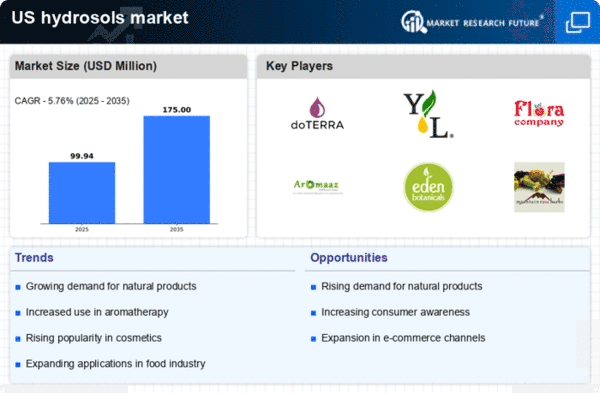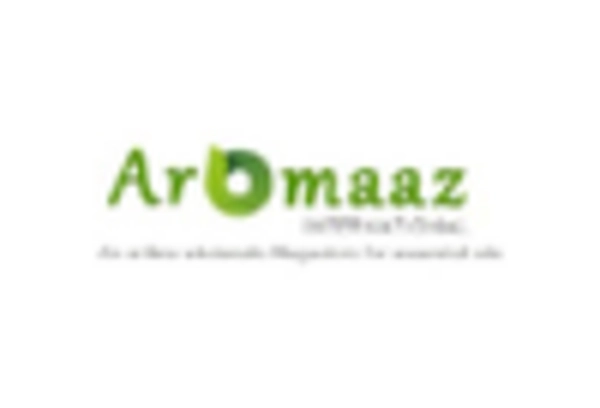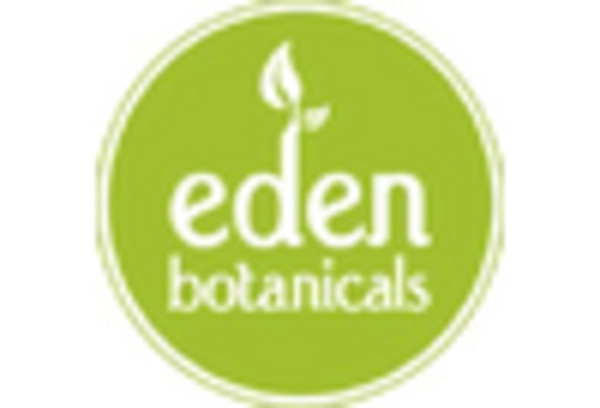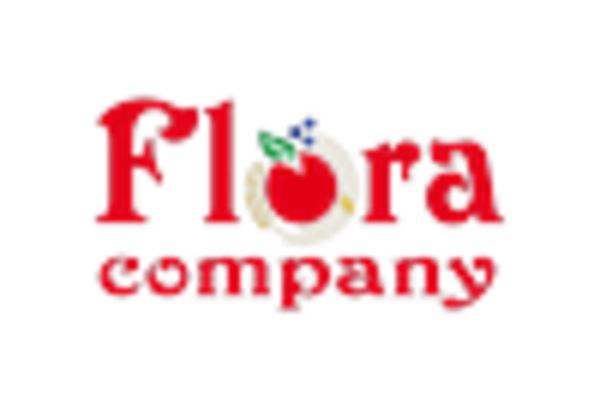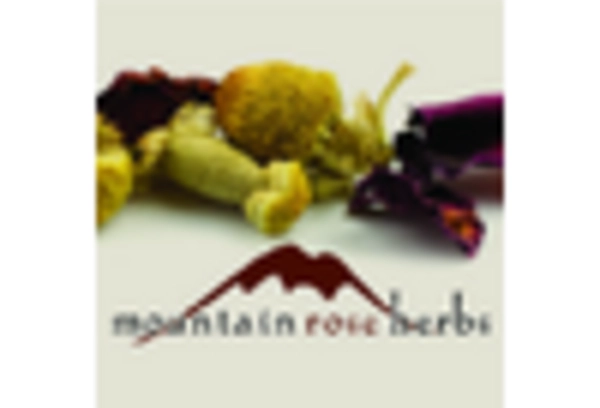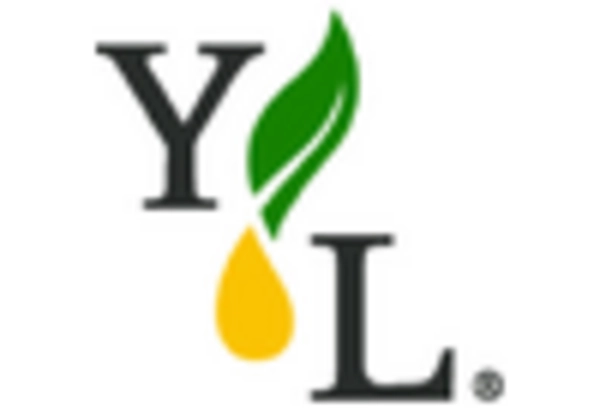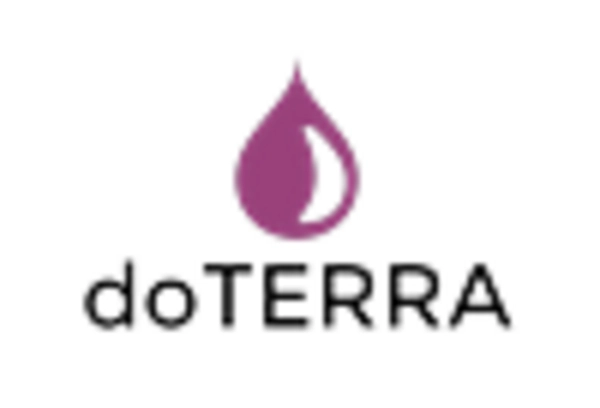Rising Popularity of DIY Products
The hydrosols market is witnessing a rise in the popularity of do-it-yourself (DIY) products, particularly in the beauty and wellness sectors. Consumers are increasingly interested in creating their own personal care items, which has led to a growing demand for hydrosols as versatile ingredients. This trend is supported by the proliferation of online platforms that offer recipes and tutorials for DIY formulations. The DIY beauty market is projected to grow at a CAGR of 7.2% from 2025 to 2030, suggesting a favorable environment for hydrosols. As consumers seek to personalize their products, the hydrosols market is likely to benefit from this trend, as hydrosols are often used for their aromatic and therapeutic properties.
Expansion of the Organic Farming Sector
The hydrosols market is benefiting from the expansion of the organic farming sector in the United States. As organic farming practices gain traction, the availability of high-quality raw materials for hydrosol production is increasing. This shift towards organic cultivation not only enhances the quality of hydrosols but also aligns with consumer preferences for organic and sustainably sourced products. The organic food market in the US is expected to reach $100 billion by 2025, which may positively influence the hydrosols market. The growth of organic farming is likely to provide a steady supply of botanicals, thereby supporting the production and innovation of hydrosols.
Increasing Consumer Awareness of Health Benefits
The hydrosols market is experiencing a notable surge in consumer awareness regarding the health benefits associated with natural products. As individuals become more health-conscious, they are increasingly seeking alternatives to synthetic ingredients in personal care and wellness products. This trend is reflected in the rising demand for hydrosols, which are perceived as safer and more beneficial. According to recent data, the market for natural personal care products is projected to grow at a CAGR of 8.5% through 2027, indicating a robust interest in hydrosols. This heightened awareness is likely to drive growth in the hydrosols market, as consumers prioritize products that align with their health and wellness goals.
Technological Advancements in Extraction Methods
The hydrosols market is poised for growth due to technological advancements in extraction methods. Innovations in distillation and extraction techniques are enhancing the efficiency and quality of hydrosol production. These advancements allow for better preservation of the aromatic and therapeutic properties of botanicals, which is crucial for consumer satisfaction. As extraction technologies improve, the cost of production may decrease, potentially leading to more competitive pricing in the hydrosols market. Furthermore, these advancements may facilitate the introduction of new hydrosol products, catering to diverse consumer preferences and expanding market reach.
Integration of Hydrosols in Food and Beverage Applications
The hydrosols market is experiencing a noteworthy integration of hydrosols into food and beverage applications. As culinary trends shift towards natural flavors and ingredients, hydrosols are being utilized for their unique aromatic profiles and potential health benefits. This trend is particularly evident in the beverage industry, where hydrosols are being incorporated into craft cocktails and health drinks. The US beverage market is projected to reach $1.7 trillion by 2026, indicating a substantial opportunity for hydrosols. This integration not only enhances flavor but also aligns with consumer preferences for clean-label products, thereby driving growth in the hydrosols market.


